Want to know more about the Best Sociology Schools In the US and make an informed decision? Here is a good place to start.
Are you ready to explore the fascinating world of society and human behavior? If so, buckle up because we’ve got a treat for you. We’ve scoured the academic world to bring you a list of the absolute best sociology schools.
These schools will have you analyzing social structures, dissecting cultural norms, and understanding the world around you like never before.
Grab your thinking cap and get ready to become the ultimate armchair sociologist because we’re about to take you on a journey you won’t forget.
Please note that schools are selected based on our criteria (at the end of the article), ranked by the latest acceptance rate.
Table of Contents
#25. Washington University in St. Louis
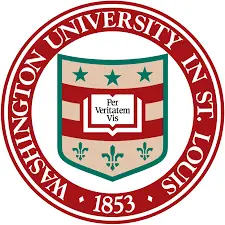
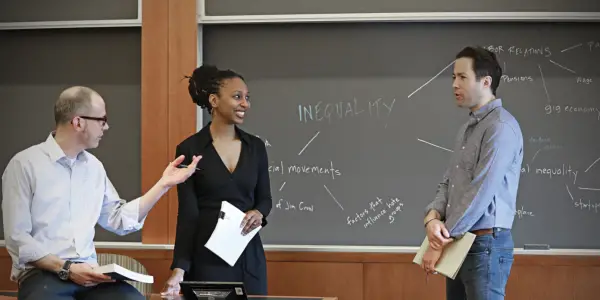
- Acceptance rate: 54%
- Average entry score: 1220-1470 SAT or 29-34 ACT
- Student-to-faculty ratio: 9 to 1
- Estimated cost of attendance (tuition and fees): $30,640-$58,470
- Average earning potential for graduates: $26,202 (College Factual)
Washington University’s sociology programs bring together the best faculty and resources to help students prepare for a career in sociology.
Graduates of Washington University’s sociology programs are well-equipped to pursue a wide range of careers, from academia and research to non-profit work and public policy.
They have a deep understanding of the complexities of our society and are prepared to tackle the most pressing social issues of our time.
Source: Washington University in St. Louis
#24. University of Florida

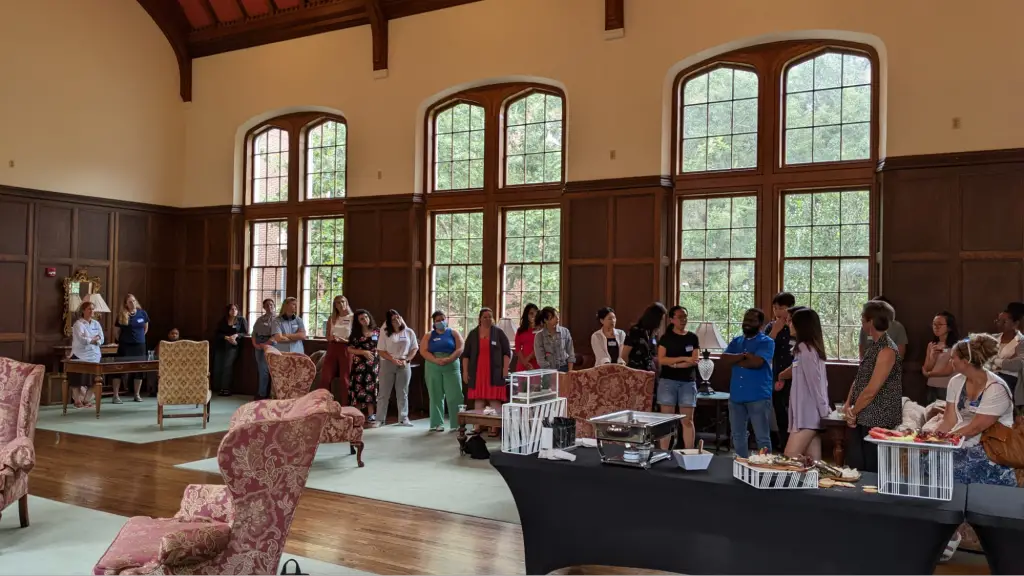
- Acceptance rate: 42%
- Average entry score: 1300-1470 SAT or 29-33 ACT
- Student-to-faculty ratio: 18 to 1
- Estimated cost of attendance (tuition and fees): $21,430-$43,708
- Average earning potential for graduates: $26,610 (College Factual)
As a top institution, the University of Florida creates a conducive environment of learning, research and innovation.
Sociology students explore the many aspects of human behavior and social life. They study the causes and consequences of social change, as well as how people interact with each other in society.
Sociology majors may choose from a variety of courses that focus on specific sociological topics such as crime, health care, race/ethnicity, gender roles and deviance.
Source: University of Florida
#23. University of North Carolina Chapel Hill


- Acceptance rate: 20%
- Average entry score: 1310-1500 SAT or 29-33 ACT
- Student-to-faculty ratio: 13 to 1
- Estimated cost of attendance (tuition and fees): $24,546-$51,725
- Average earning potential for graduates: $30,367 (College Factual)
The University of North Carolina at Chapel Hill has got some serious sociology games. Their program is like a social justice Swiss Army knife, covering everything from race to inequality to globalization.
Undergrads and grads alike can get in on the action, with opportunities to flex their research and internship muscles. The faculty is top-notch, bringing their A-game as recognized experts in their fields.
With a variety of courses and concentrations, students can customize their education to fit their interests.
Source: UNC Sociology
#22. University of Virginia

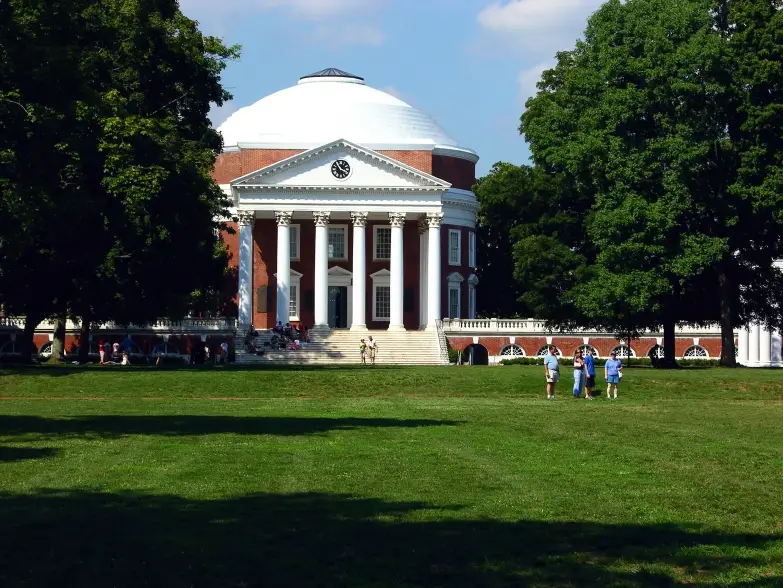
- Acceptance rate: 20%
- Average entry score: 1320-1510 SAT or 30-34 ACT
- Student-to-faculty ratio: 14 to 1
- Estimated cost of attendance (tuition and fees): $36,840-$70,808
- Average earning potential for graduates: $29,877 (College Factual)
The University of Virginia offers a strong sociology program with a focus on critical thinking and research. Undergraduate students can pursue a major or minor in sociology, while graduate students can choose from different master’s programs and a PhD program.
The department’s faculty members have diverse research interests, which range from race and ethnicity to gender and sexuality.
Students have access to various research centers and programs. This complements the department’s teaching-centered approach.
Source: Department of Sociology
Similar articles like this:
- 25 Best Political Science In The US
- 25 Best Social Sciences Schools In The US
- 25 Best Veterinary Schools In The US
#21. University of Michigan Ann Arbor


- Acceptance rate: 20%
- Average entry score: 1360-1530 SAT or 31-34 ACT
- Student-to-faculty ratio: 15 to 1
- Estimated cost of attendance (tuition and fees): $32,272-$69,326
- Average earning potential for graduates: $31,300 (College Simply)
University of Michigan’s sociology department upholds the highest level of academic integrity and is committed to ensuring that its students receive only the best education.
They do this by providing our students with a rigorous curriculum, which includes undergraduate research opportunities and multidisciplinary courses, as well as access to world-class faculty members.
Sociology students at U-M are provided with the opportunity to conduct research with faculty members. This allows them to understand the world from a sociological perspective.
Students also have access to an extensive library of books and journals that allow them to become well-versed in multiple fields of study.
Source: University of Michigan
#20. University of California Berkeley


- Acceptance rate: 14%
- Average entry score: 1415 SAT
- Student-to-faculty ratio: 17 to 1
- Estimated cost of attendance (tuition and fees): $41,878-$71,632
- Average earning potential for graduates: $42,238 (College Factual)
The University of California Berkeley is renowned for its commitment to diversity and inclusivity, providing a supportive environment for students from all backgrounds to thrive.
With a range of programs and resources dedicated to promoting diversity, equity, and inclusion, Berkeley fosters a sense of community and belonging among its diverse student body.
From scholarships and mentorship programs to cultural centers and student organizations, Berkeley strives to create a welcoming and inclusive campus culture that supports students in their academic, personal, and professional growth.
Source: Berkeley Sociology
#19. University of Southern California
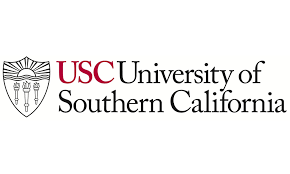

- Acceptance rate: 13%
- Average entry score: 1320-1520 SAT or 30-34 ACT
- Student-to-faculty ratio: 9 to 1
- Estimated cost of attendance (tuition and fees): $60,446
- Average earning potential for graduates: $37,102 (College Factual)
USC’s sociology programs prepare students to be change-makers in their communities and beyond.
With a commitment to providing a comprehensive understanding of social structures and phenomena, USC’s sociology programs offer students the opportunity to engage with cutting-edge research.
Through a combination of classroom instruction, hands-on research experiences, and community engagement, students develop the skills needed to pursue careers in academia, public policy, social work, and beyond.
Source: USC Department of Sociology
#18. Emory University
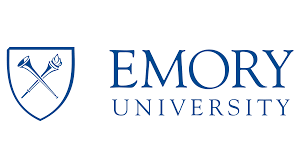
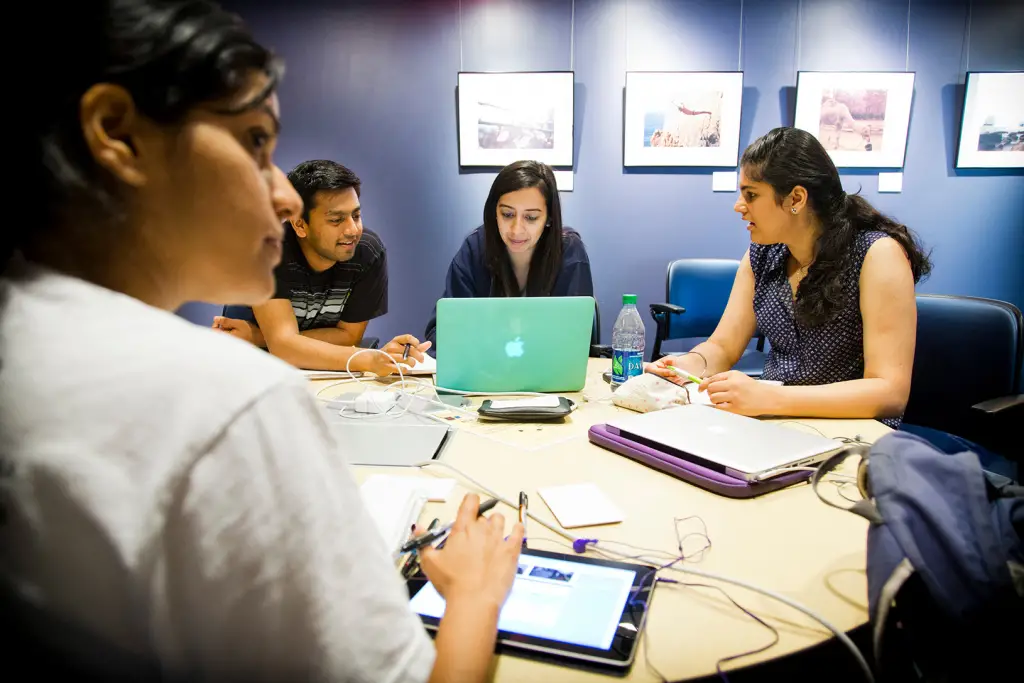
- Acceptance rate: 13%
- Average entry score: 1420-1540 SAT or 32-34 ACT
- Student-to-faculty ratio: 9 to 1
- Estimated cost of attendance (tuition and fees): $75,594
- Average earning potential for graduates: $35,600 (College Factual)
Emory University offers a variety of sociology programs, including a bachelor’s degree, a master’s degree, and a doctoral degree. The program provides students with a comprehensive understanding of social structures and the ways in which they affect individuals and groups.
Students are encouraged to engage in research and fieldwork, and to pursue their own interests within the field of sociology. Emory’s sociology department is known for its focus on social justice and its commitment to creating a more equitable society.
Graduates of Emory’s sociology programs are well-equipped to pursue careers in academia, social policy, and community organizations.
Source: Emory Sociology
Similar articles like this:
- 25 Best Information Technology Schools In The US
- 25 Best Zoology Schools In The US
- 25 Best Journalism Schools In The US
#17. University of California Los Angeles
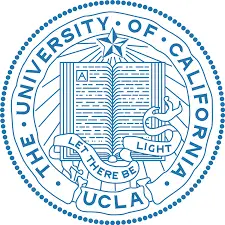

- Acceptance rate: 11%
- Average entry score: 1290-1520 SAT
- Student-to-faculty ratio: 18 to 1
- Estimated cost of attendance (tuition and fees): $16,847-$31,949
- Average earning potential for graduates: $34,801 (College Factual)
The UCLA Department of Sociology is a renowned academic department at the University of California, Los Angeles.
It offers undergraduate, graduate, and doctoral degrees in sociology, with a focus on researching and analyzing social behavior and structures.
The department has a diverse faculty with expertise in areas such as race, gender, sexuality, globalization, and social movements.
It also offers opportunities for students to engage in research and community service projects, and hosts conferences and events related to sociology and social justice.
Source: UCLA Department of Sociology
#16. Johns Hopkins University

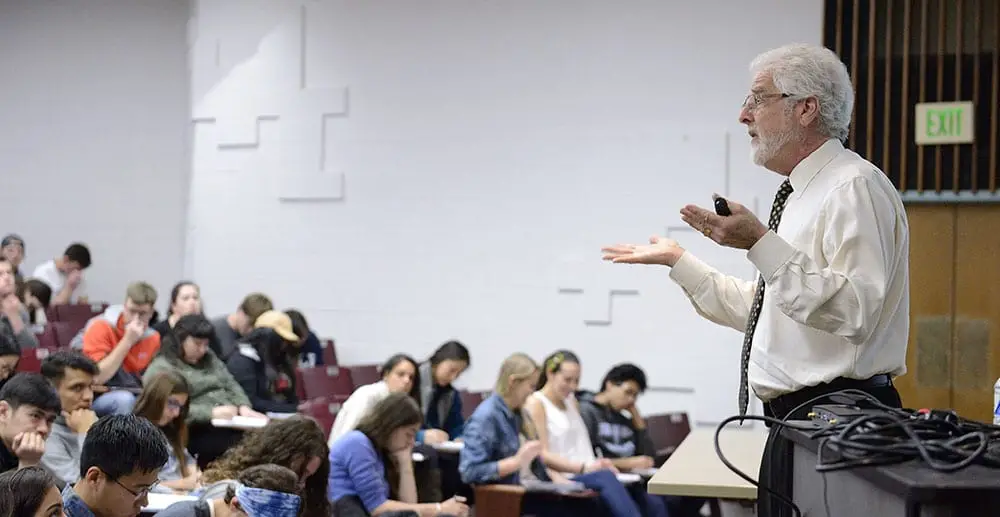
- Acceptance rate: 11%
- Average entry score: 1510-1570 SAT or 34-35 ACT
- Student-to-faculty ratio: 7 to 1
- Estimated cost of attendance (tuition and fees): $78,657
- Average earning potential for graduates: $28,960 (Grad Reports)
Johns Hopkins University’s sociology programs offer a rich array of faculty and resources for students. The department boasts a diverse group of scholars, including experts in the study of race, gender, and inequality.
Students can take advantage of research opportunities focusing on educational inequality.
The department also offers a variety of seminars and workshops throughout the year, providing students with opportunities to engage with cutting-edge research and build their skills as sociologists.
Source: Johns Hopkins University
What’s it like to study at Johns Hopkins University?
#15. Cornell University
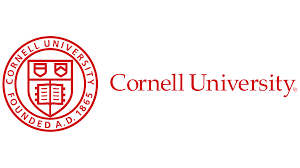

- Acceptance rate: 11%
- Average entry score: 1450-1560 SAT or 33-35 ACT
- Student-to-faculty ratio: 9 to 1
- Estimated cost of attendance (tuition and fees): $78,992
- Average earning potential for graduates: $38,100 (College Factual)
At Cornell University, sociology students enjoy a personalized learning experience that balances the theory and practice of sociology.
Students learn from experts in their fields and study alongside other students with diverse interests.
This unique blend of academic rigor and real-world application prepares Cornell sociology students for successful careers.
Source: Cornell University’s Department of Sociology
#14. New York University
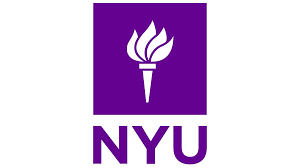

- Acceptance rate: 10%
- Average entry score: 1455 SAT or 33 ACT
- Student-to-faculty ratio: 8 to 1
- Estimated cost of attendance (tuition and fees): $80,878
- Average earning potential for graduates: $42,066 (College Factual)
New York University sociology programs examine how we live, work, and interact with one another. Their faculty comprises leading scholars in their respective fields, who offer students an opportunity to gain an in-depth understanding of the social world.
Through coursework, research opportunities, and internships, students gain an in-depth understanding of how sociological theories can be applied in real-world settings.
Students leave NYU with a rich understanding of the social forces that shape their lives and the skills needed to critically analyze society.
Source: New York University
Similar articles like this:
- 25 Best Schools For Soil Sciences In The US
- 25 Best Art History Schools In The US
- 25 Best Schools For Aerospace Engineering In The US
#13. Rice University


- Acceptance rate: 10%
- Average entry score: 1490-1570 SAT or 34-35 ACT
- Student-to-faculty ratio: 6 to 1
- Estimated cost of attendance (tuition and fees): $74,110
- Average earning potential for graduates: $29,500 (College Simply)
Rice University’s sociology programs are highly regarded for their interdisciplinary approach to understanding social phenomena.
Their programs stand out for their rigorous academic standards and commitment to advancing social justice.
Students have access to world-class faculty who provide them with a rigorous and challenging education in the social sciences.
The program offers a unique combination of theoretical and methodological training, preparing students for their careers.
Source: Rice University
#12. University of Chicago
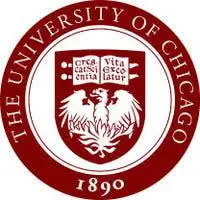
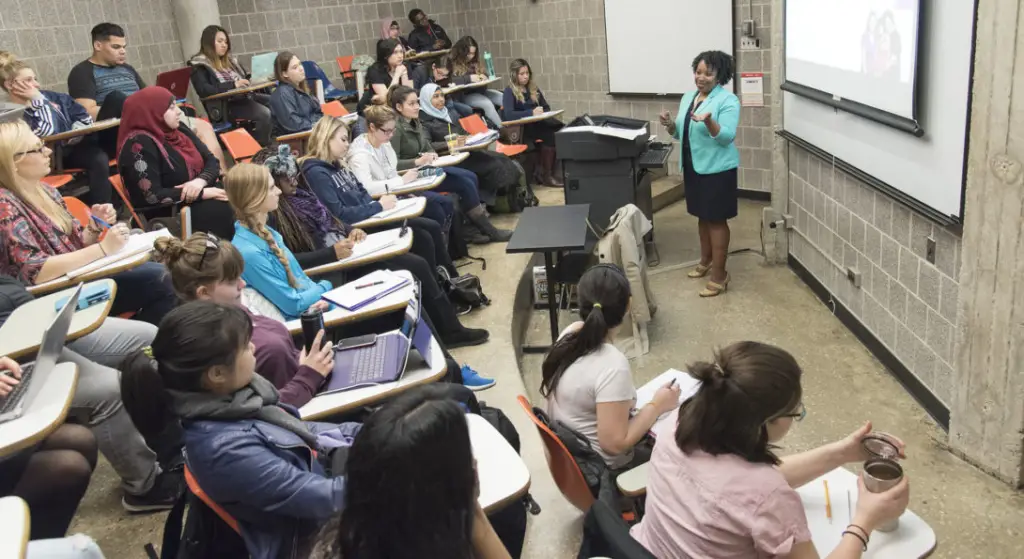
- Acceptance rate: 7%
- Average entry score: 1510-1580 SAT or 33-35 ACT
- Student-to-faculty ratio: 5 to 1
- Estimated cost of attendance (tuition and fees): $85,536
- Average earning potential for graduates: $39,749 (College Factual)
The University of Chicago’s Department of Sociology offers a comprehensive curriculum that covers social theory, ethnicity, gender and sexuality, and urban sociology.
Students are encouraged to develop a deep understanding of sociological principles and engage in critical thinking and research.
The program offers both undergraduate and graduate sociology degrees, with courses focused on developing skills in data analysis and sociological research methods.
Their curriculum also emphasizes the importance of interdisciplinary study, with opportunities to take courses across departments and collaborate with scholars from other disciplines.
Source: The University of Chicago
What’s it like to study at the University of Chicago?
#11. Vanderbilt University


- Acceptance rate: 7%
- Average entry score: 1480-1570 SAT or 34-35 ACT
- Student-to-faculty ratio: 8 to 1
- Estimated cost of attendance (tuition and fees): $79,558
- Average earning potential for graduates: $32,925 (College Factual)
Vanderbilt University offers a robust sociology program that provides students with a comprehensive understanding of social structures and their impact on society.
The program offers a variety of tools and resources to help learners, including research opportunities, internships, and fieldwork experiences.
Vanderbilt’s sociology department also features a diverse faculty with expertise in areas such as race, class, gender, and sexuality, ensuring that students receive a well-rounded education in sociology.
Source: Vanderbilt University
#10. Northwestern University

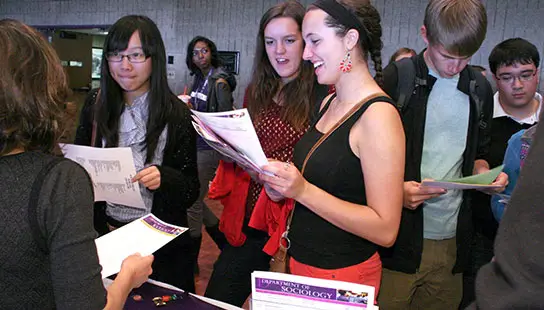
- Acceptance rate: 7%
- Average entry score: 1440-1550 SAT or 33-35 ACT
- Student-to-faculty ratio: 6 to 1
- Estimated cost of attendance (tuition and fees): $62,391
- Average earning potential for graduates: $41,134 (College Factual)
Northwestern University’s sociology programs offer a rigorous and comprehensive education that combines theoretical and empirical approaches to the study of social phenomena.
The department’s faculty includes renowned scholars and researchers committed to producing innovative and impactful research on a wide range of topics.
Students have the opportunity to engage in cutting-edge research projects, participate in workshops and conferences, and pursue interdisciplinary collaborations across the university.
The program’s emphasis on critical thinking, analytical skills, and research methods prepares graduates for careers in academia, public policy, nonprofit organizations, and beyond.
Source: Northwestern University
Similar articles like this:
- 25 Best Schools For Business Management Studies In The US
- 25 Best Schools For Programming In The US
- 25 Best Commerce Schools In The US
#9. Duke University


- Acceptance rate: 6%
- Average entry score: 1480-1570 SAT or 33-35 ACT
- Student-to-faculty ratio: 8 to 1
- Estimated cost of attendance (tuition and fees): $84,517
- Average earning potential for graduates: $60,357 (College Factual)
Duke University offers a range of sociology programs that prepare students for various careers. The sociology department provides students with a strong foundation in research methods, data analysis, and critical thinking skills.
Graduates from Duke’s sociology programs have gone on to pursue careers in fields such as law, public policy, social work, and academia.
The department also offers opportunities for students to gain hands-on experience through internships and research projects, enhancing their job prospects upon graduation.
Source: Duke University
What’s it like to study at Duke University?
#8. Dartmouth College
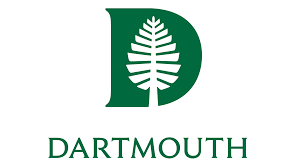

- Acceptance rate: 6%
- Average entry score: 1449-1560 SAT or 32-35 ACT
- Student-to-faculty ratio: 7 to 1
- Estimated cost of attendance (tuition and fees): $81,662
- Average earning potential for graduates: $41,800 (College Simply
Dartmouth College offers a comprehensive sociology program that allows students to explore a range of topics related to social inequality, economy, and more.
The program offers two minors in social inequalities and economy, which provide students with a deeper understanding of the social and economic factors that shape our lives.
Students in these minors have the opportunity to take courses on topics such as race and ethnicity, gender and sexuality, globalization, poverty, and social policy.
The program also offers research and internship opportunities, allowing students to apply their knowledge in real-world settings.
Source: Dartmouth College’s Sociology
#7. Brown University
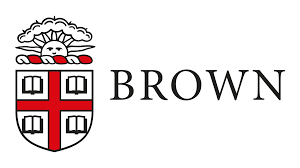

- Acceptance rate: 6%
- Average entry score: 1460-1570 SAT or 33-35 ACT
- Student-to-faculty ratio: 6 to 1
- Estimated cost of attendance (tuition and fees): $84,986
- Average earning potential for graduates: $19,547 (College Factual)
Brown University’s sociology programs incorporate a range of teaching methods to address diverse learning needs. In addition to traditional lectures, courses often feature small group discussions, experiential learning opportunities, and collaborative projects.
Professors also use technology to enhance learning, including online forums and multimedia presentations. The department emphasizes critical thinking and encourages students to engage with real-world problems through their coursework.
With a focus on empirical research, students learn to evaluate and analyze data using both quantitative and qualitative methods.
Source: Brown University
#6. University of Pennsylvania

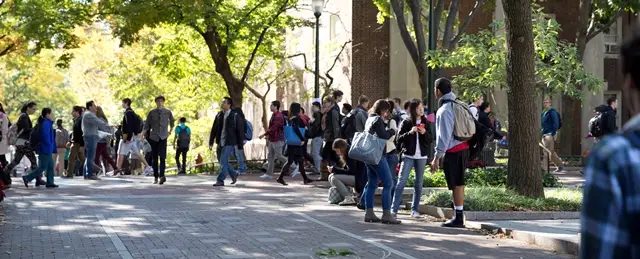
- Acceptance rate: 6%
- Average entry score: 1460-1570 SAT or 33-35 ACT
- Student-to-faculty ratio: 7 to 1
- Estimated cost of attendance (tuition and fees): $65,790
- Average earning potential for graduates: $43,668 (College Factual)
The sociology programs at the University of Pennsylvania are an eco-warrior’s dream, with a focus on the environment that’s more intense than a solar flare.
Students get the chance to collaborate with researchers from other departments, making it easier to join forces than the Avengers. The curriculum is a mixed bag, covering everything from social inequality to globalization.
Whether you’re gunning for an undergraduate, graduate, or doctoral degree, Penn’s sociology programs will make you feel like a boss, ready to take on the world with a sociological lens.
Source: University of Pennsylvania
What’s it like to study at University of Pennsylvania?
Similar articles like this:
#5. Yale University
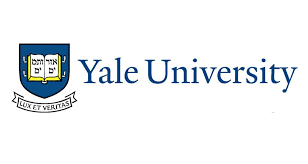
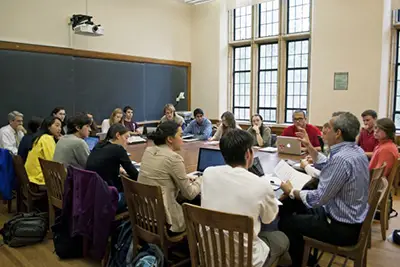
- Acceptance rate: 5%
- Average entry score: 33-35 ACT
- Student-to-faculty ratio: 6 to 1
- Estimated cost of attendance (tuition and fees): $84,525
- Average earning potential for graduates: $41,300 (College Simply)
Yale University’s sociology programs are unique in their interdisciplinary approach, blending sociology with other fields such as psychology, economics, and political science.
The department’s focus on the intersection of multiple disciplines allows students to explore a wide range of sociological topics in relation to their own interests.
Yale’s sociology program also offers opportunities for students to engage in community-based research and activism, further emphasizing its commitment to social justice and real-world impact.
Source: Yale University
What’s it like to study at Yale University?
#4. Columbia University
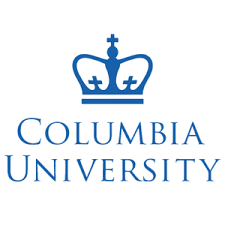

- Acceptance rate: 4%
- Average entry score: 1440-1570 SAT or 34-35 ACT
- Student-to-faculty ratio: 6 to 1
- Estimated cost of attendance (tuition and fees): $85,000
- Average earning potential for graduates: $53,374 (College Factual)
Columbia University’s sociology programs offer a stimulating academic environment that encourages critical thinking and intellectual curiosity.
Students are exposed to diverse perspectives and are encouraged to engage in research and community outreach.
Graduates have gone on to secure positions at prestigious institutions and organizations around the world.
Source: Department of Sociology
#3. Princeton University


- Acceptance rate: 4%
- Average entry score: 1570 SAT
- Student-to-faculty ratio: 5 to 1
- Estimated cost of attendance (tuition and fees): $78,490
- Average earning potential for graduates: $44,170 (College Factual)
Princeton University’s sociology department is renowned for its academic rigor and excellence in research. This department provides a supportive and intellectually stimulating environment for students to pursue their academic and career goals
Thir faculty members are not only experts in their fields but also deeply committed to helping their students succeed. Students benefit from a tight-knit community where they can collaborate with their peers on projects and research.
The school also offers a range of resources and opportunities for students to engage in cutting-edge research and gain practical experience.
Source: Princeton Sociology
What’s it like to study at Princeton University?
#2. Harvard University

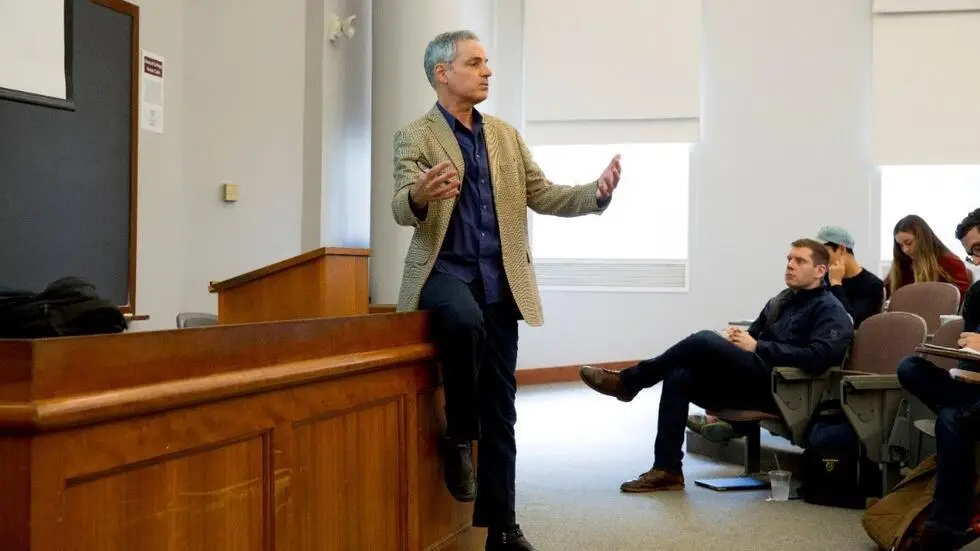
- Acceptance rate: 4%
- Average entry score: 1460-1580 SAT or 33-35 ACT
- Student-to-faculty ratio: 7 to 1
- Estimated cost of attendance (tuition and fees): $76,963
- Average earning potential for graduates: $58,277 ( College Factual)
The Harvard University Department of Sociology is one of the oldest and most prestigious sociology programs in the world. It is known for its commitment to innovative research and teaching.
Harvard’s sociology programs focus on social inequality, diversity, and globalization. The school’s graduates have gone on to hold leadership positions in academia, government, and industry.
What sets the program apart is its interdisciplinary approach, which draws on insights from economics, political science, psychology, and other fields to better understand complex social phenomena.
Source: Harvard University Department of Sociology
What’s it like to study at Harvard University?
#1. Stanford University

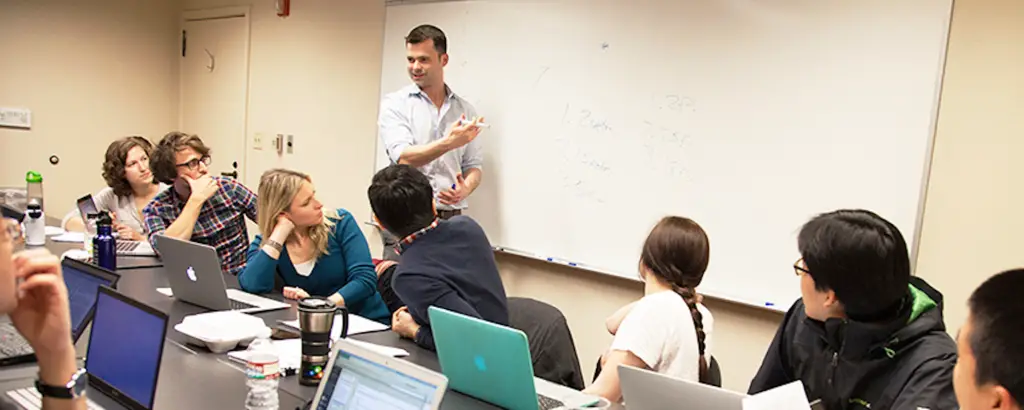
- Acceptance rate: 4%
- Average entry score: 1470-1570 SAT or 34-35 ACT
- Student-to-faculty ratio: 5 to 1
- Estimated cost of attendance (tuition and fees): $78,898
- Average earning potential for graduates: $48,820 (Grad Reports)
Stanford University’s sociology department is renowned for its expertise in various fields of psychology, including social, economic, and political psychology.
Their experts are highly skilled in analyzing and understanding the complex social, economic, and political factors that shape our society.
With their research, they shed light on the fundamental causes of societal problems such as inequality, discrimination, and social injustice, providing valuable insights to policymakers, business leaders, and the public.
Their contributions to the field of sociology have made Stanford one of the leading institutions for studying human behavior and society.
Source: Sociology, Stanford University
What’s it like to study at Stanford University?
Conclusion
Are you ready to embark on a journey of sociological discovery and become a master of the human experience?
Well, choosing the right school is key to your success, my friend. Lucky for you, the schools mentioned in this post boast top-notch programs, experienced faculty, and opportunities for research and practical experience.
Don’t settle for mediocrity, choose one of these schools and become a sociological superstar.
Selection Criteria
Here is a list of the factors we considered when selecting the best sociology schools:
Please note that the order in this list might vary by ranking criteria and sources.
- Reputation and ranking of the school: We looked for schools that have a strong reputation and high ranking in sociology.
- Faculty expertise, qualifications, and specialization: We researched the faculty members and their areas of expertise, and qualifications to ensure that the school has professors with relevant expertise and specialization in the areas of sociology that are of interest.
- Curriculum and resources: We evaluated the curriculum to ensure it aligns with students’ interests and career goals and considered the quality of the school’s facilities and resources, such as labs, equipment, and libraries.
- Opportunities for hands-on learning and research: We looked for schools that provide opportunities for hands-on experience through internships, co-op programs, or fieldwork.
- Student support services and alumni network: We considered the availability of support services and the strength of the alumni network in providing mentorship, internships, and job opportunities after graduation.
- Extracurricular activities and diversity: We evaluated the availability of extracurricular activities and clubs that align with students’ interests and considered the school’s diversity and inclusivity.
- Networking and post-graduation support: We researched the school’s network of alumni and their post-graduation support for sociology students, and also considered if the schools have a strong network of sociology professionals and researchers.
Frequently Asked Questions
Q1. What are the best sociology schools in the country?
The best sociology schools in the country are typically determined by factors such as research output and academic reputation.
Some of the top sociology schools in the US include Harvard University, Stanford University, University of California-Berkeley, University of Chicago, and Columbia University.
Q2. How do I choose the right sociology school for me?
Choosing the right sociology school for you can depend on several factors, such as your academic interests, career goals, and location preferences.
Consider researching different schools’ sociology programs, faculty research areas, and available resources to determine which school aligns with your interests and goals.
Q3. What are the admission requirements for top sociology programs?
Admission requirements for top sociology programs may vary but generally involve submitting transcripts, letters of recommendation, personal statements, and standardized test scores.
Some schools may also require an interview or writing sample.
Q4. How do I finance my sociology education?
Financing a sociology education can involve applying for scholarships, grants, and student loans.
Additionally, some schools may offer assistantship or fellowship opportunities for graduate students to gain experience and receive financial support.
Q5. What kind of career opportunities are available with a degree from a top sociology program?
Career opportunities with a sociology degree can vary, but some options may include working in academia, research, social services, government, or non-profit organizations.
Sociology graduates may also pursue careers in fields such as law, journalism, or public policy.
References
[1] Official Websites
[2] Salary Data from Glassdoor, Grad Reports, College Factual, College Simply, Zippia
[3] Ranking references, including news media such as Colleges Offering a Sociology Major.


